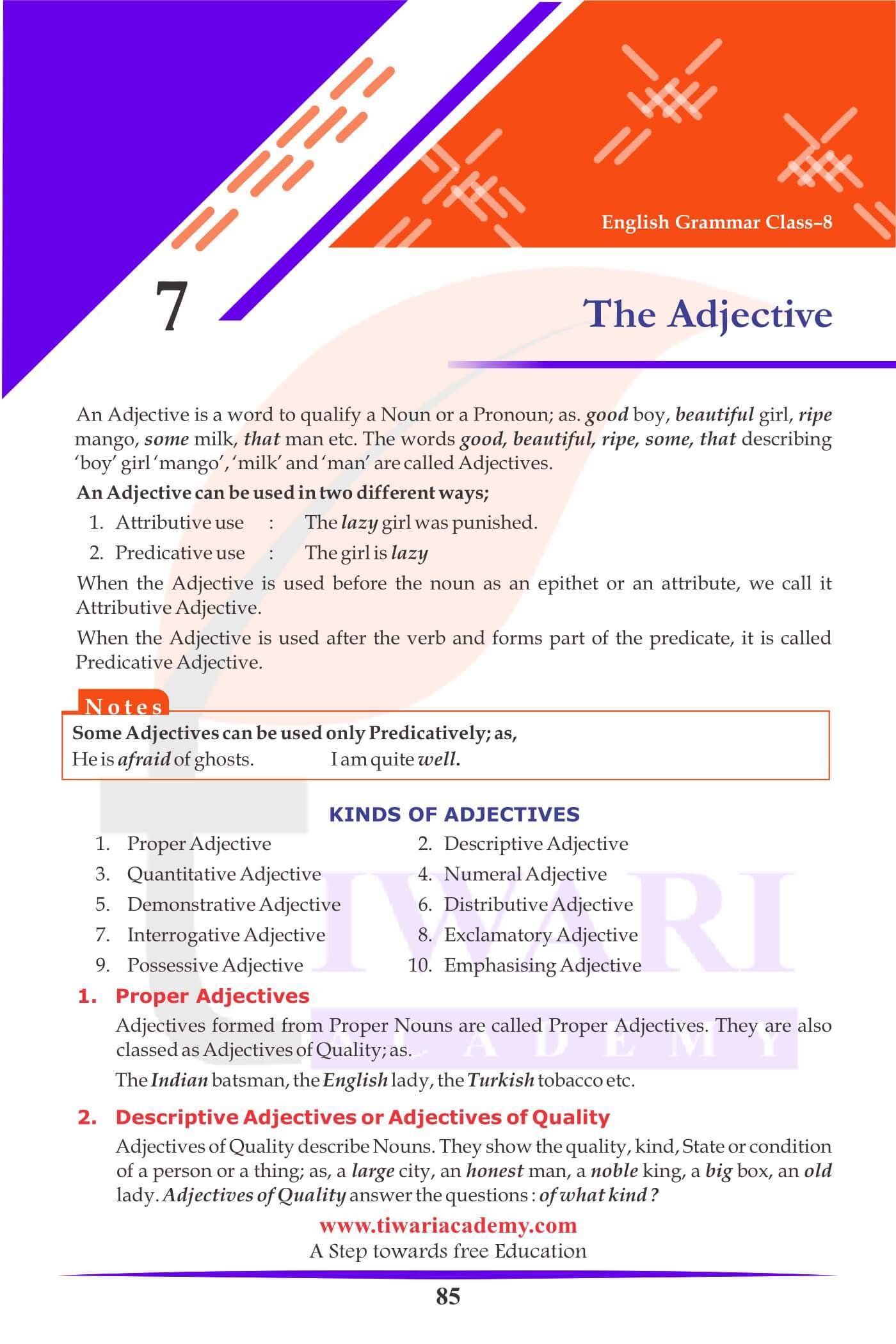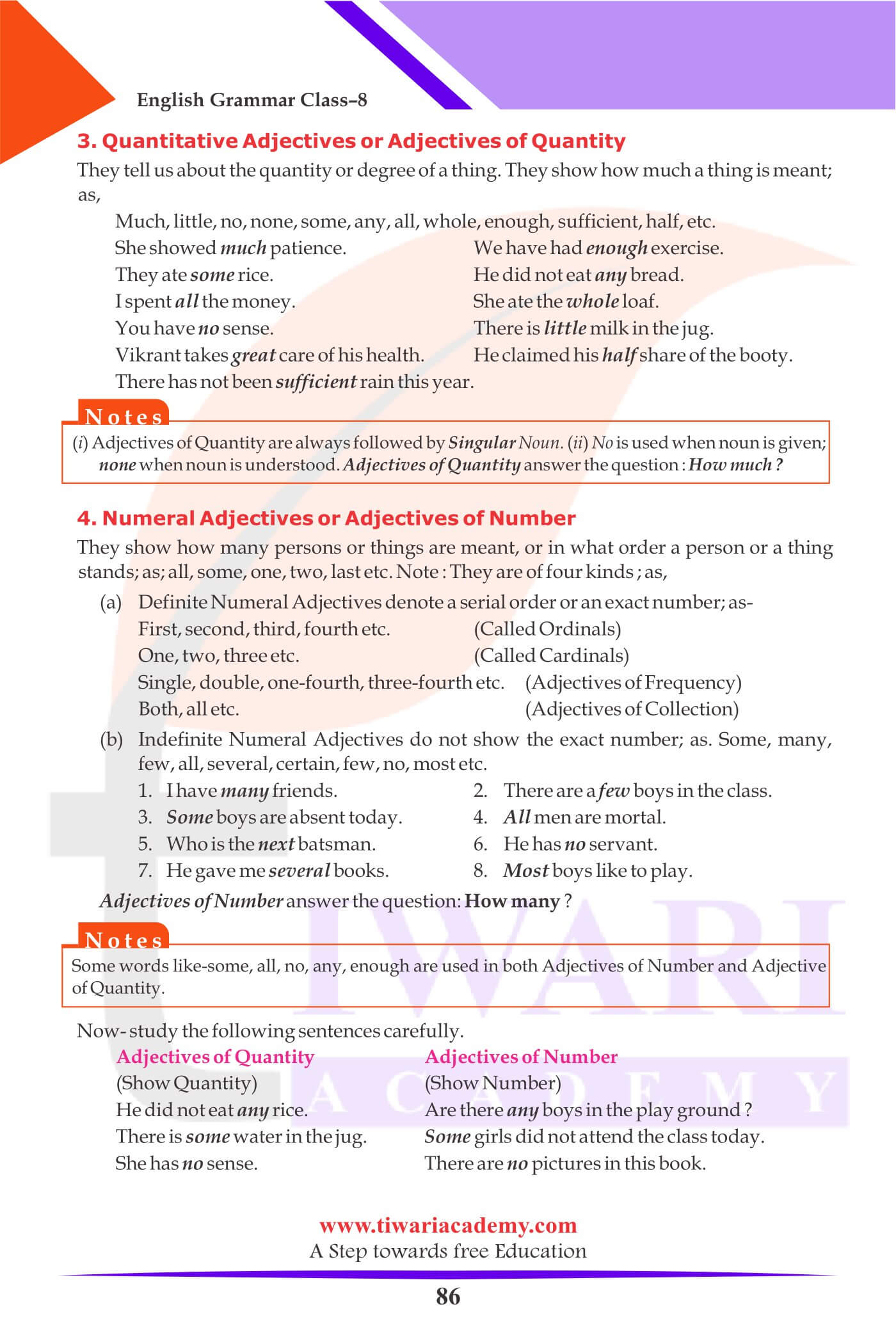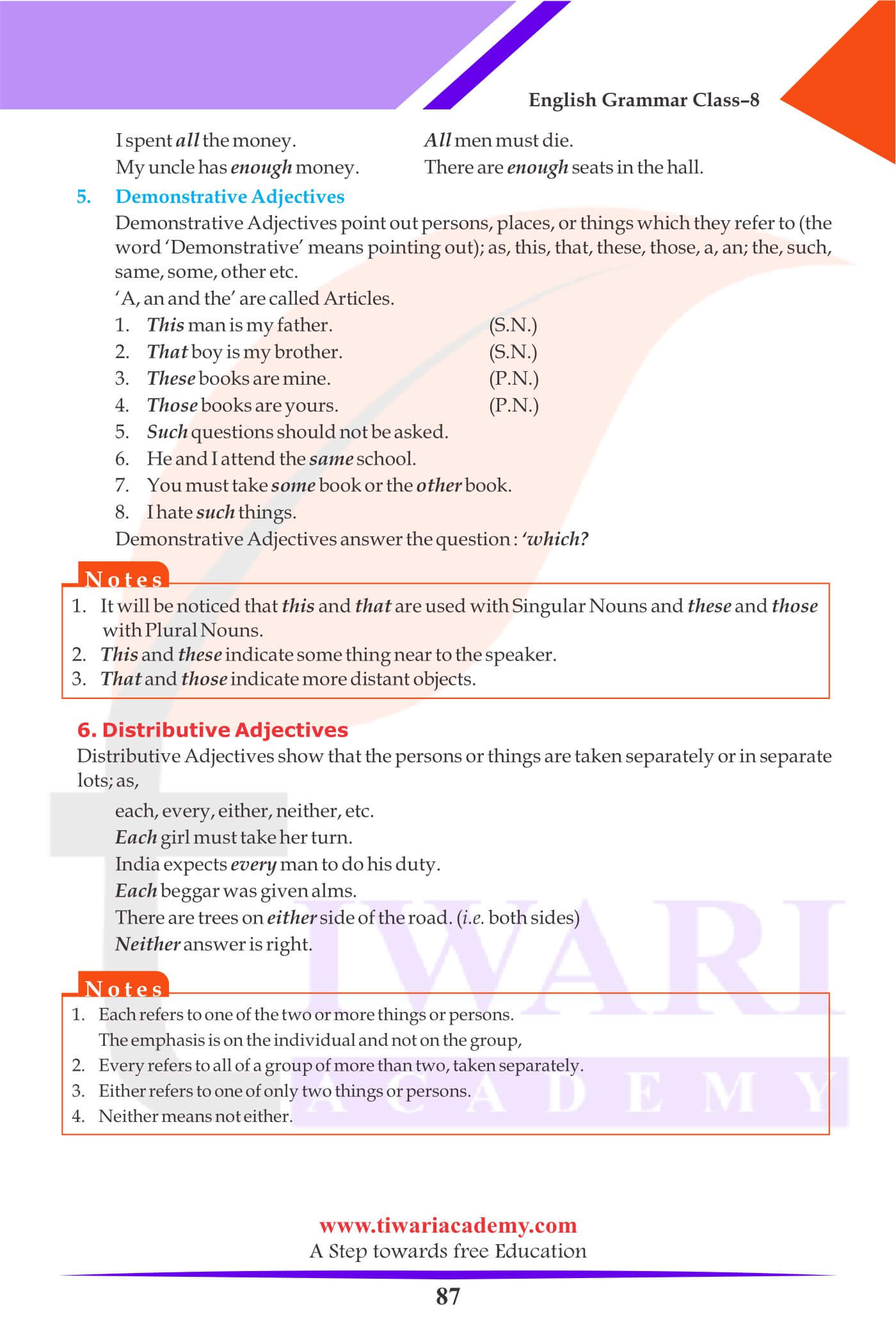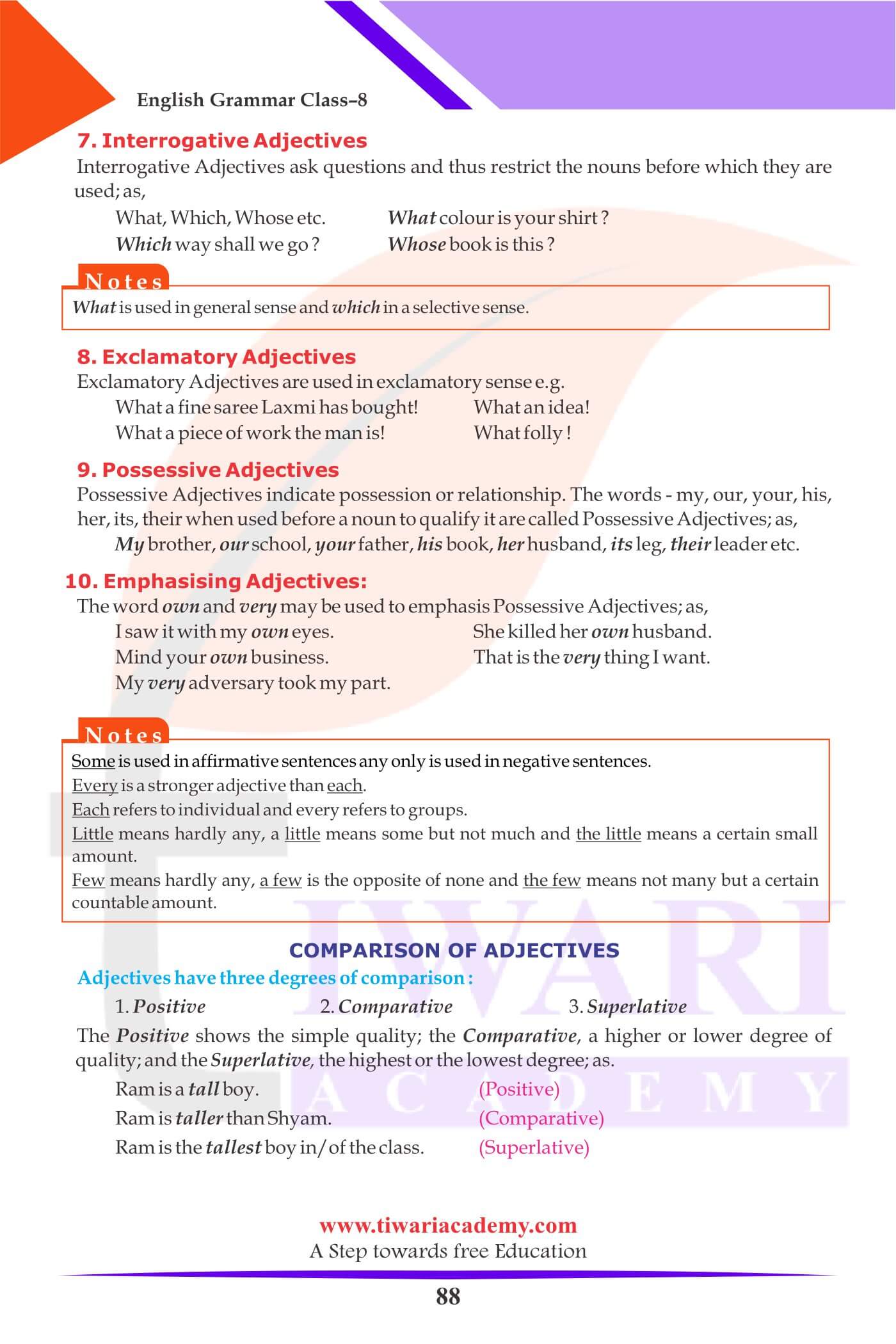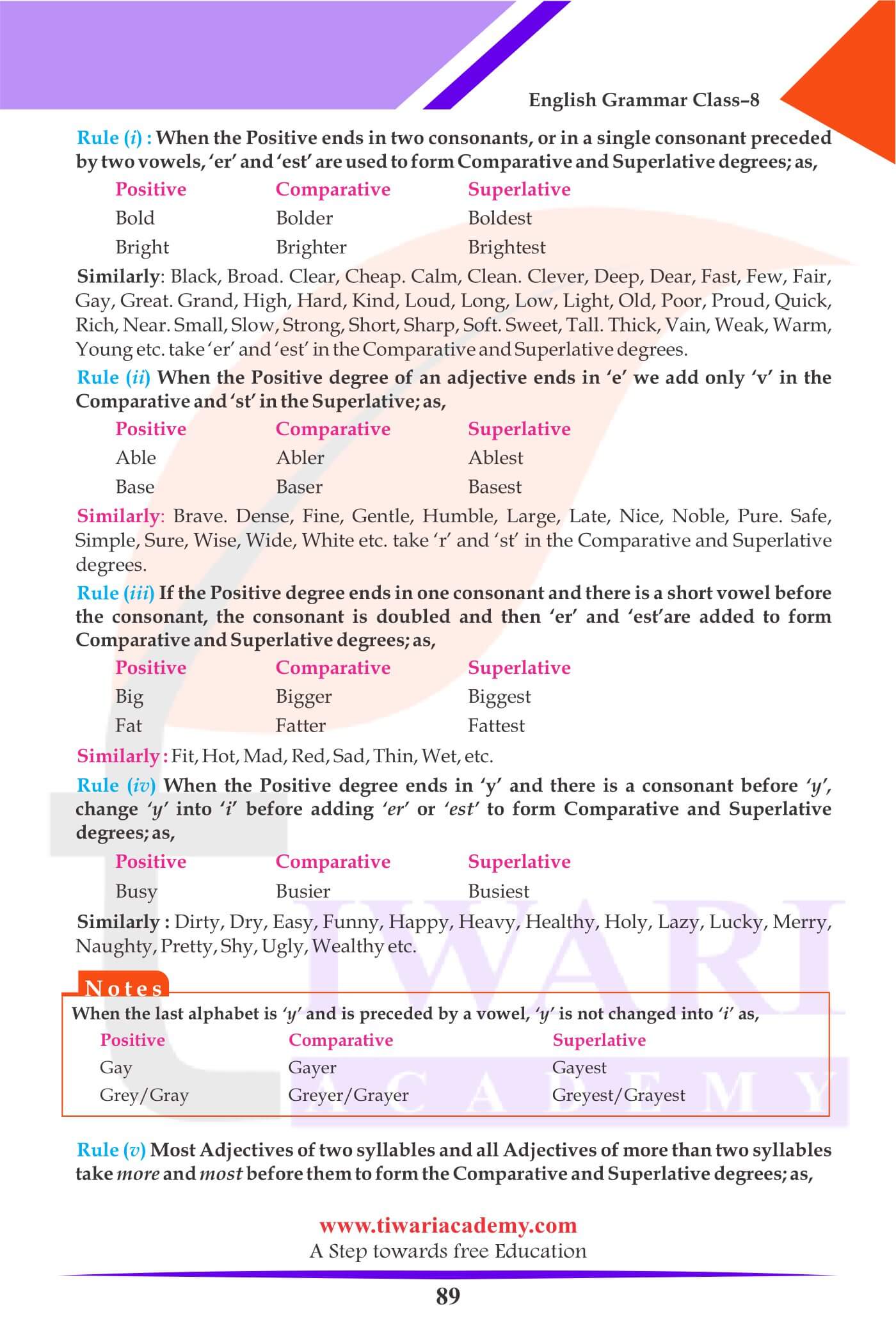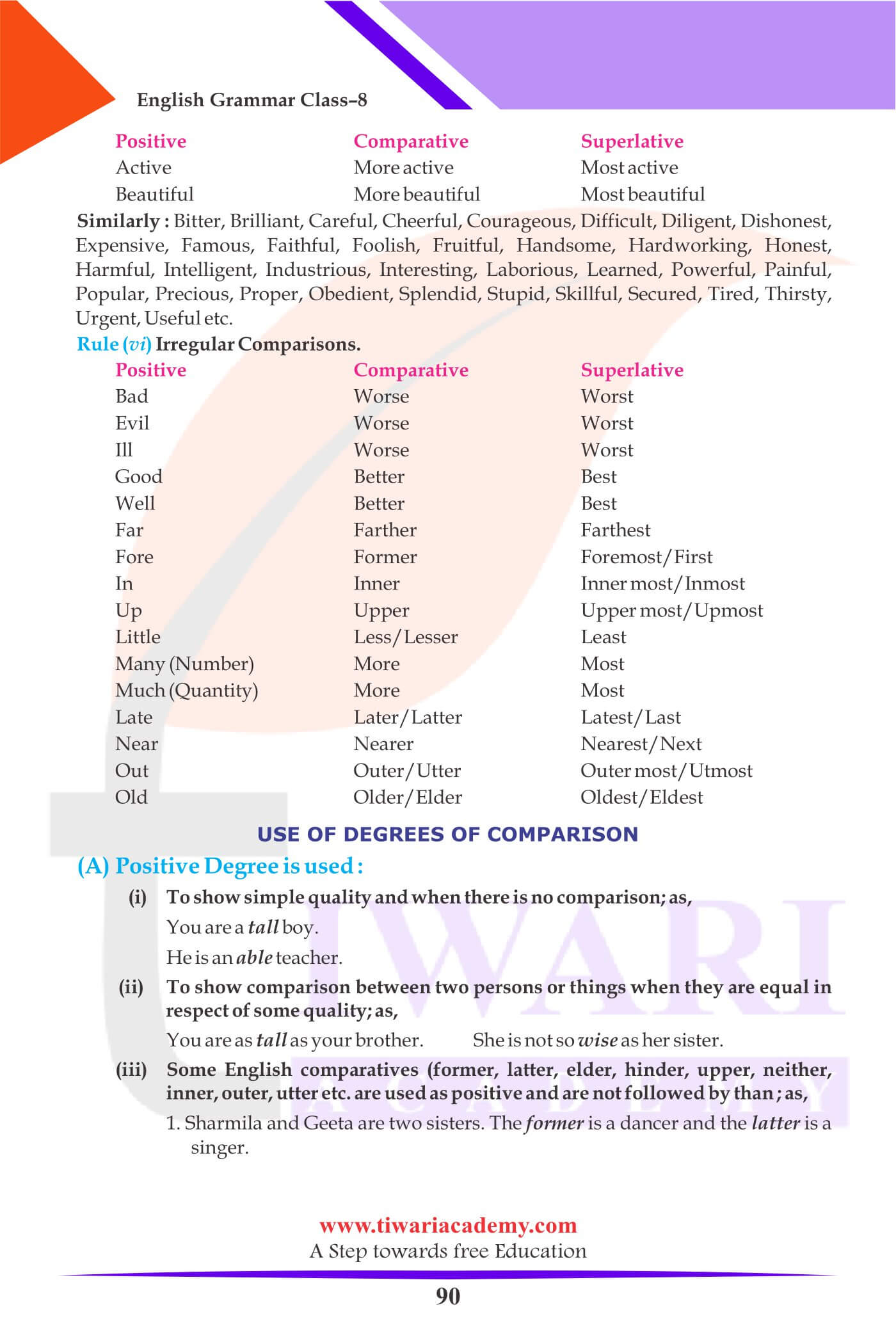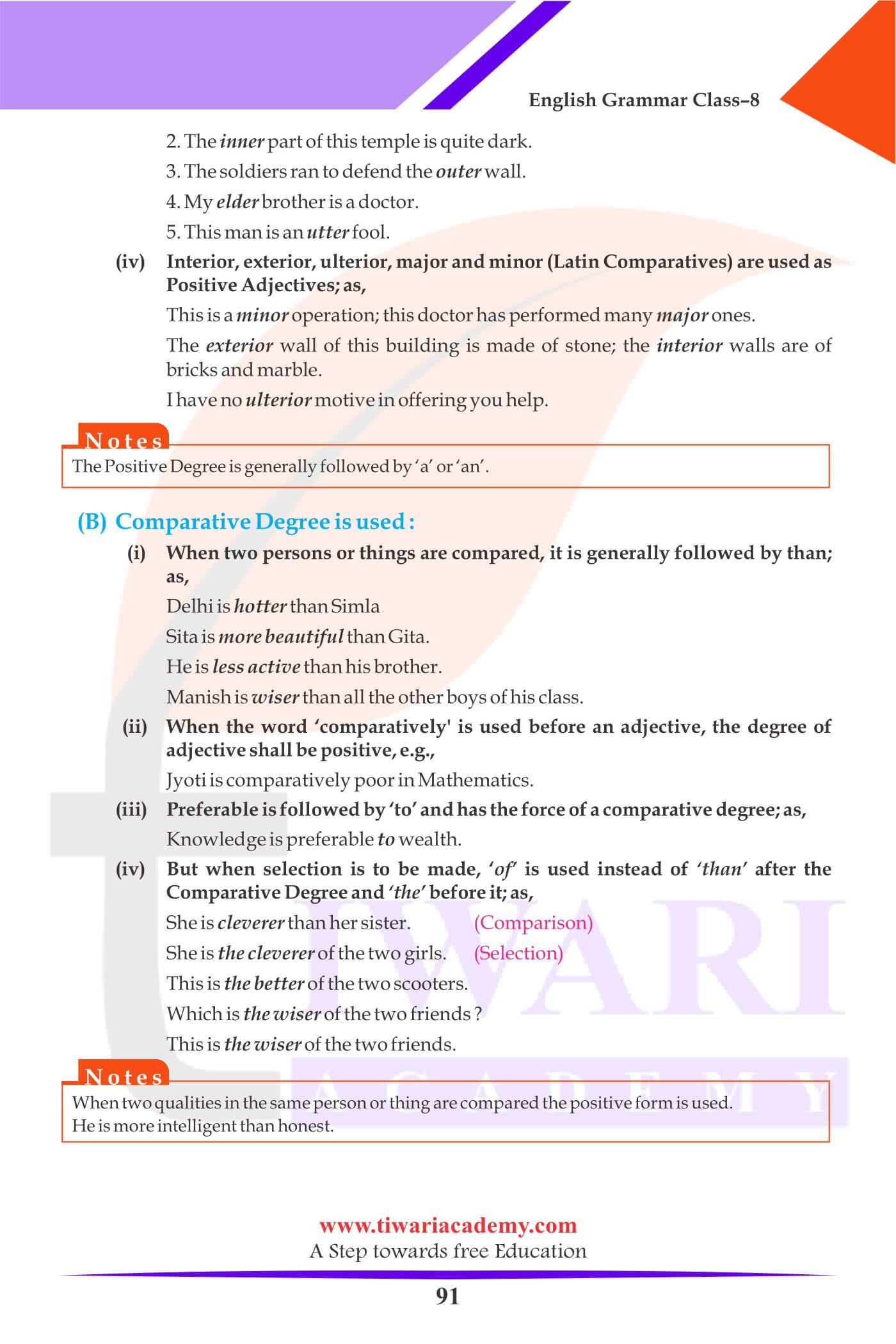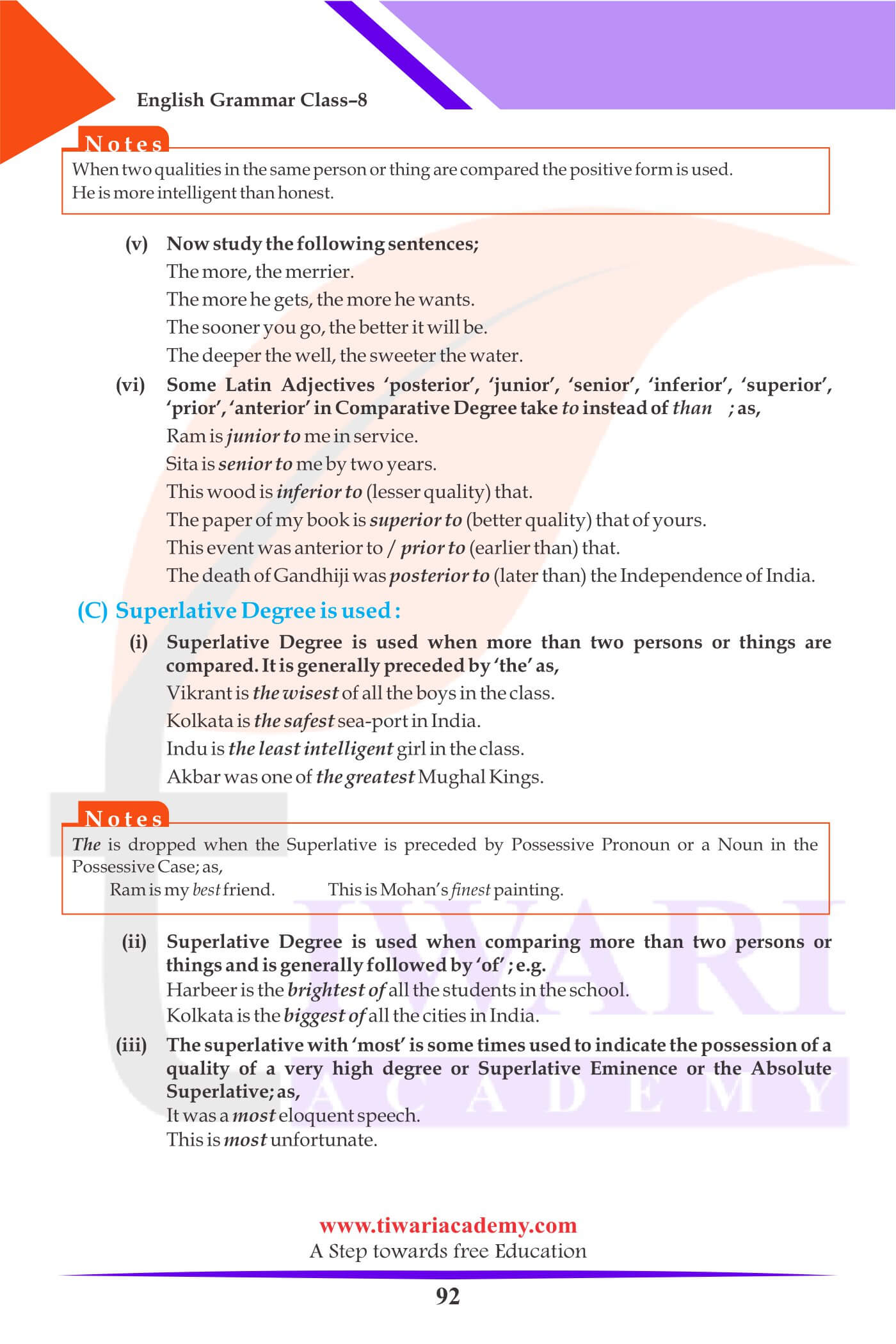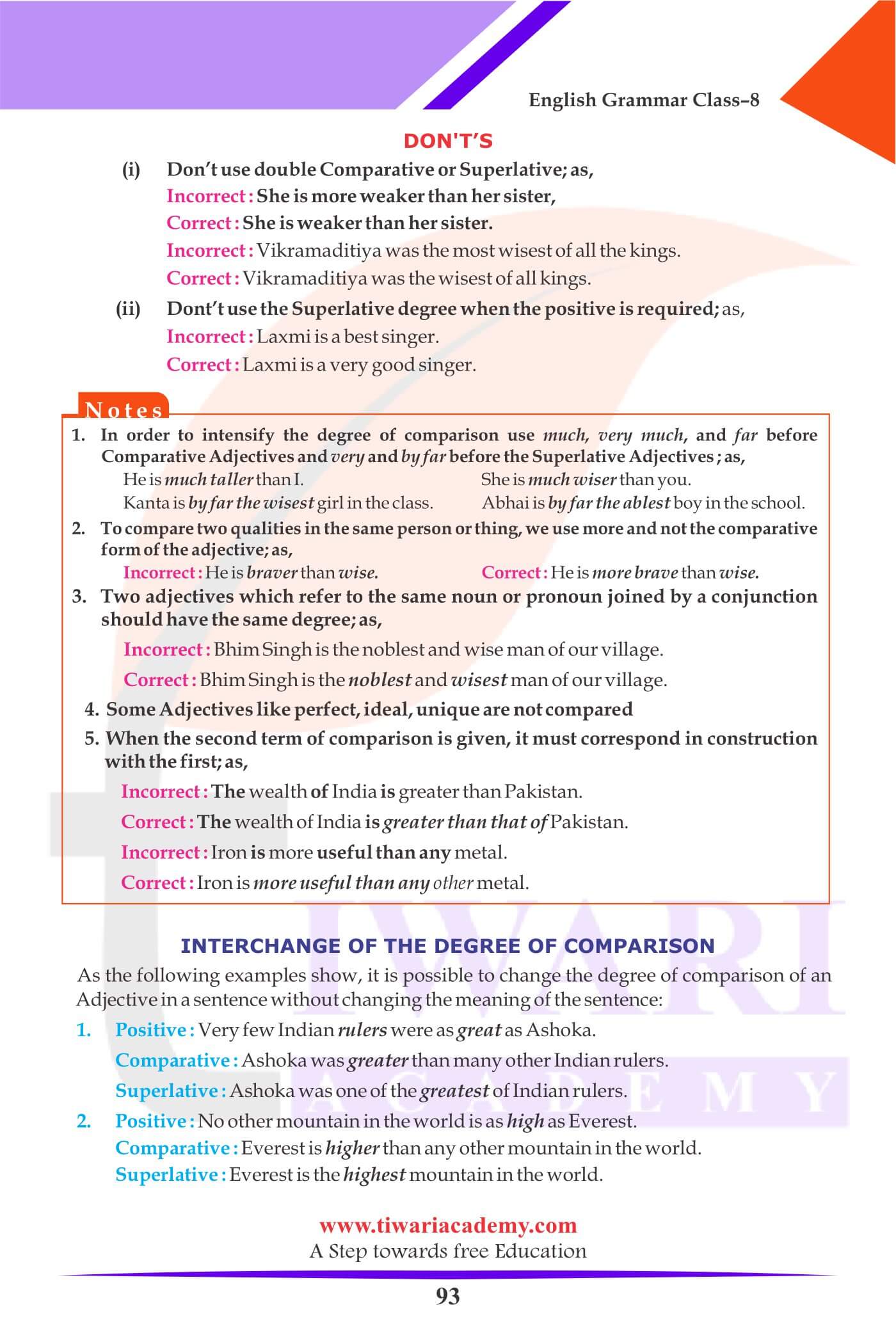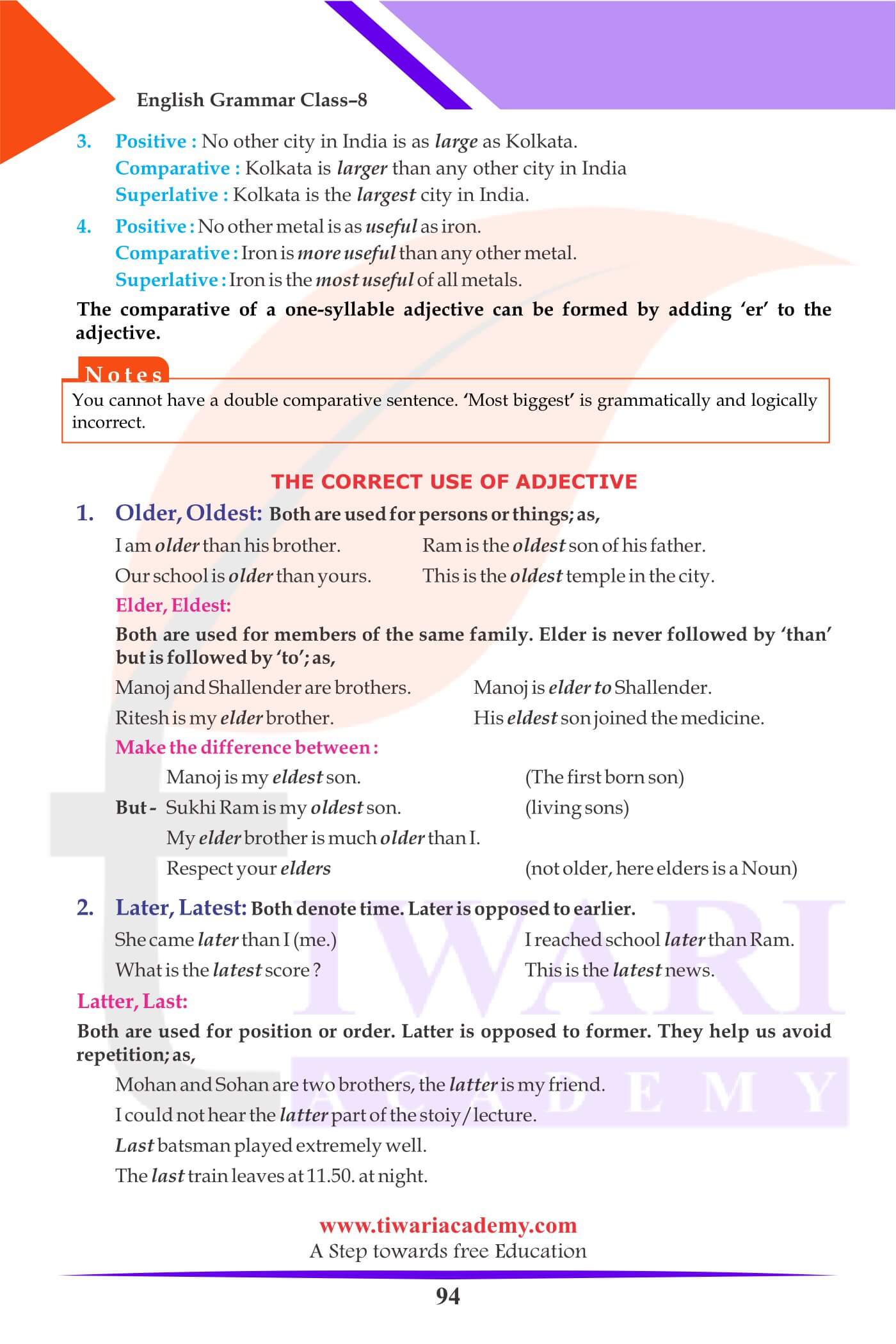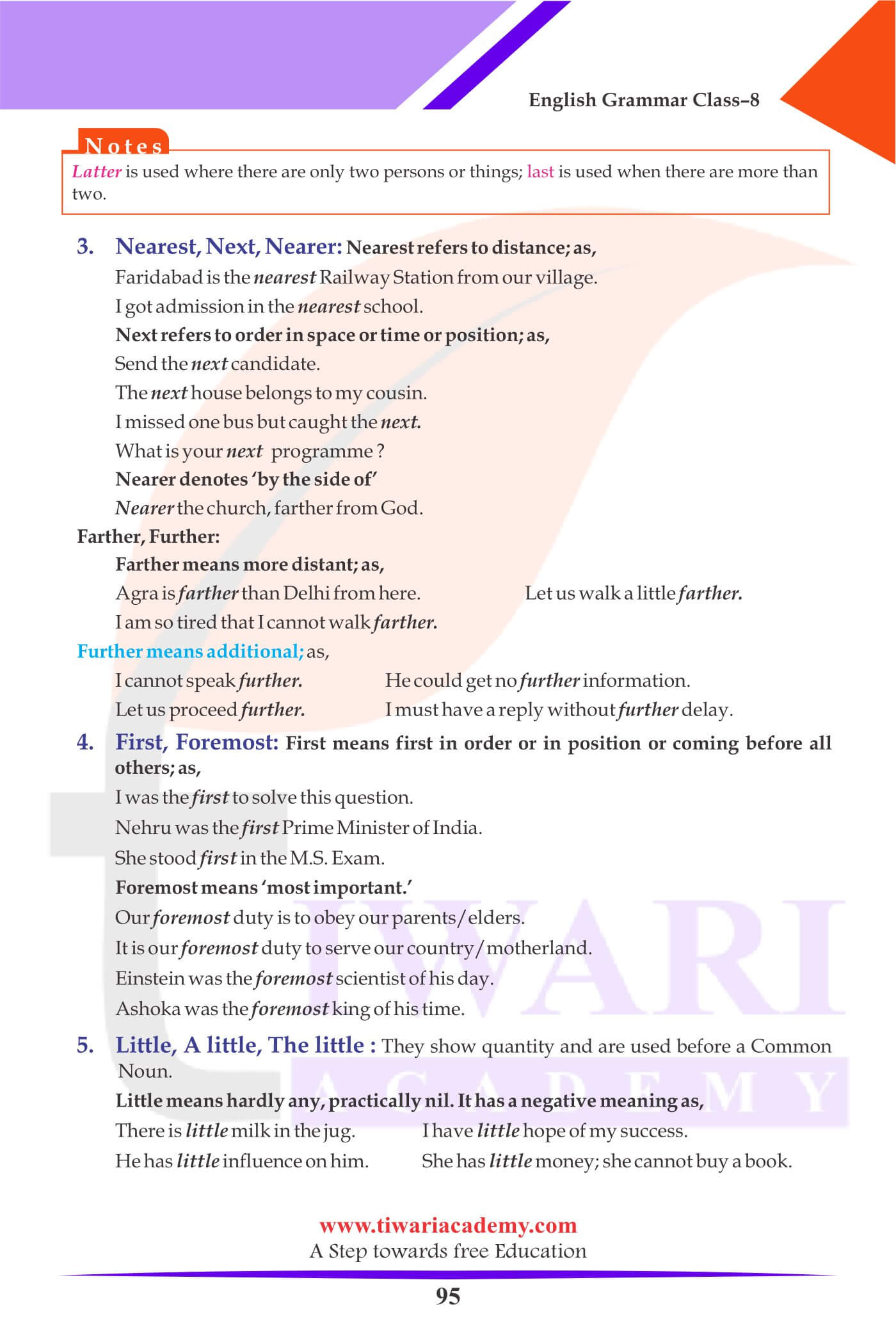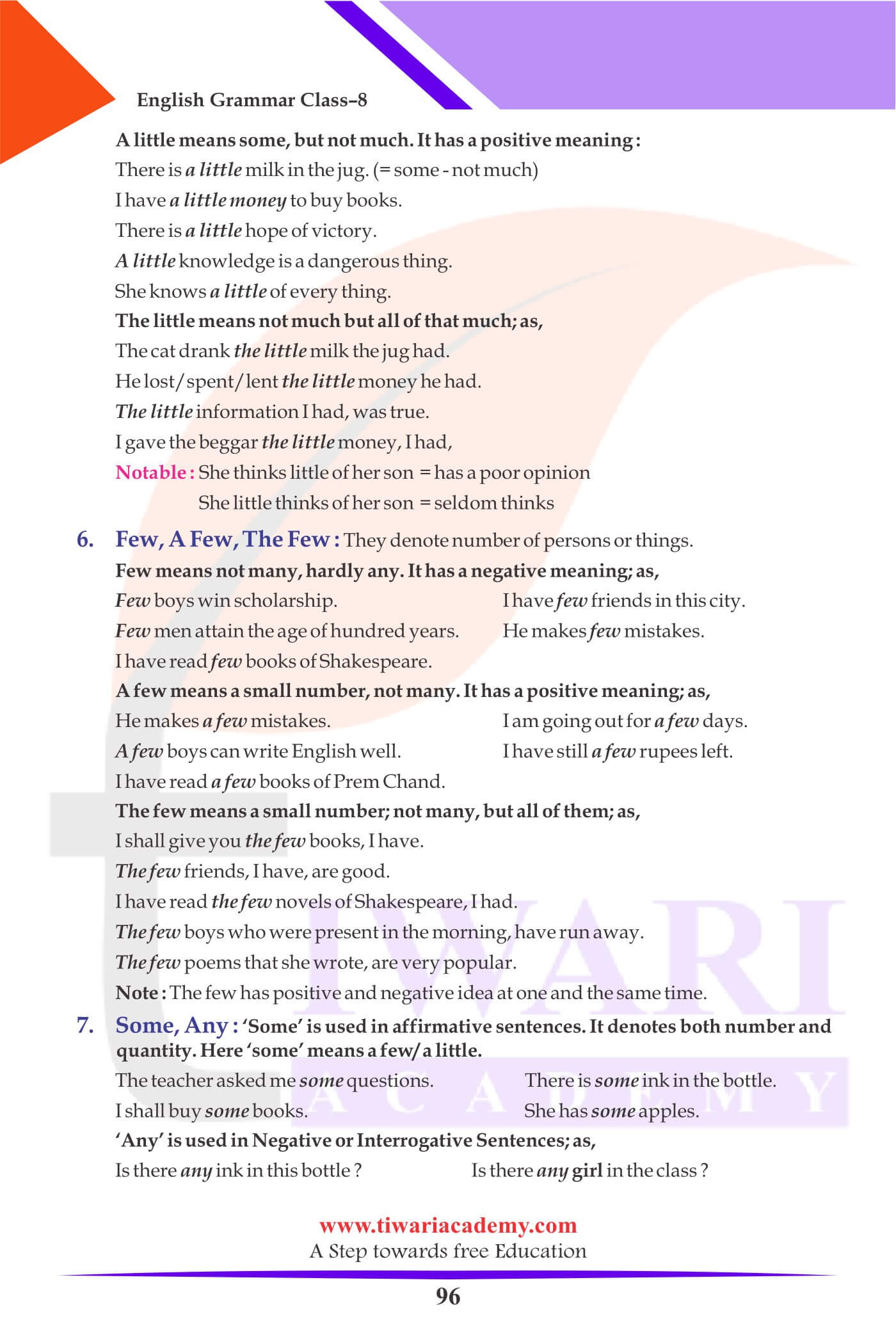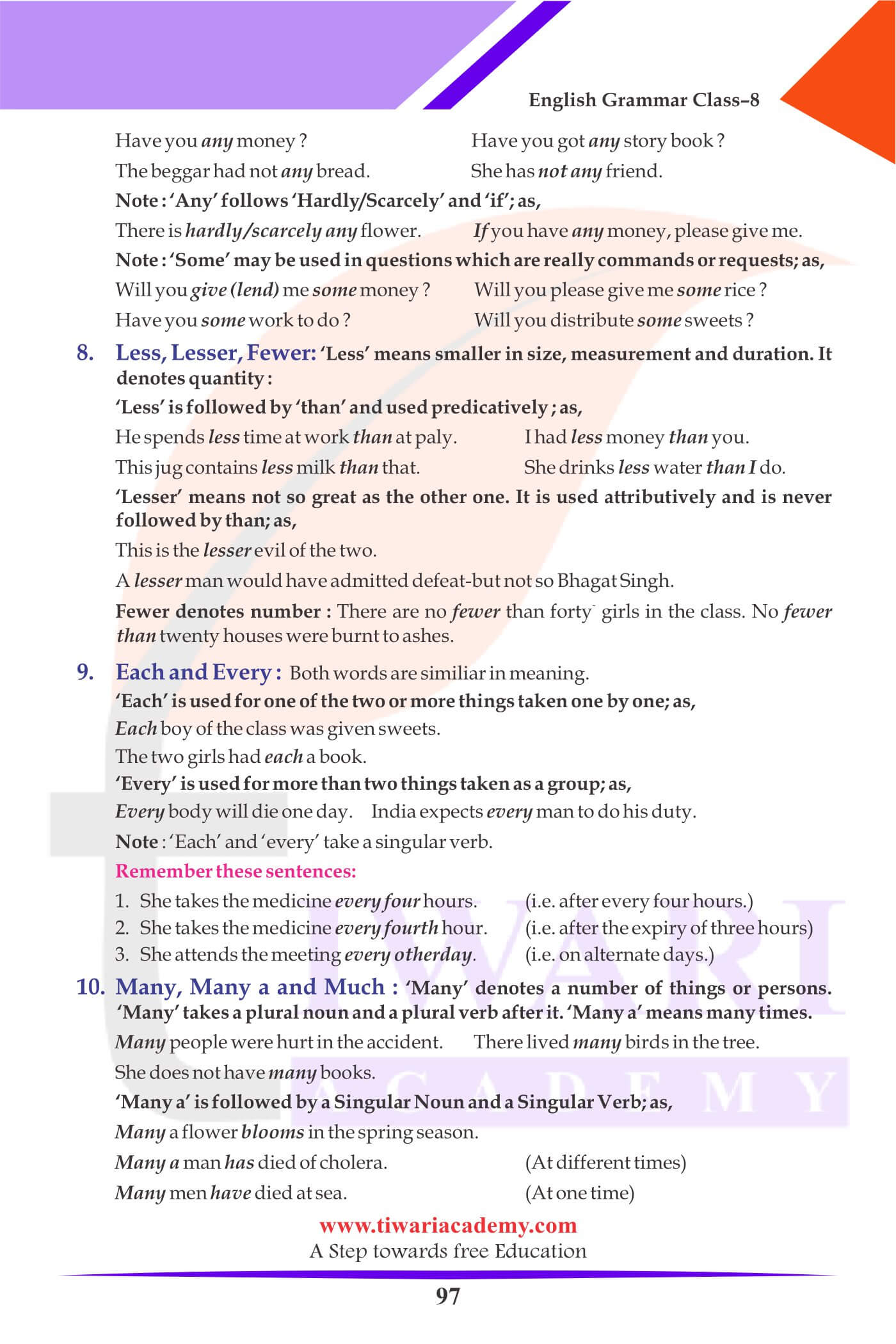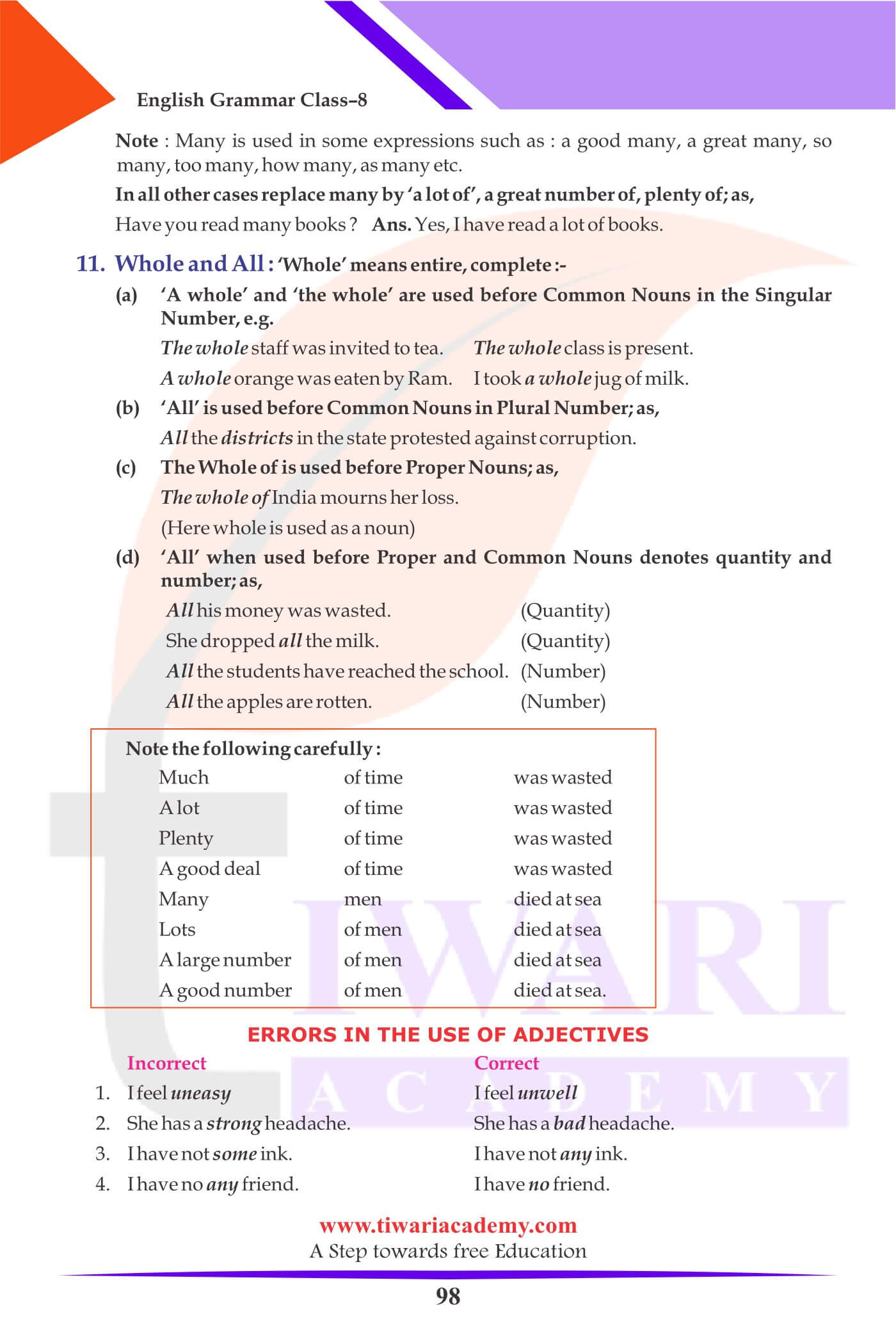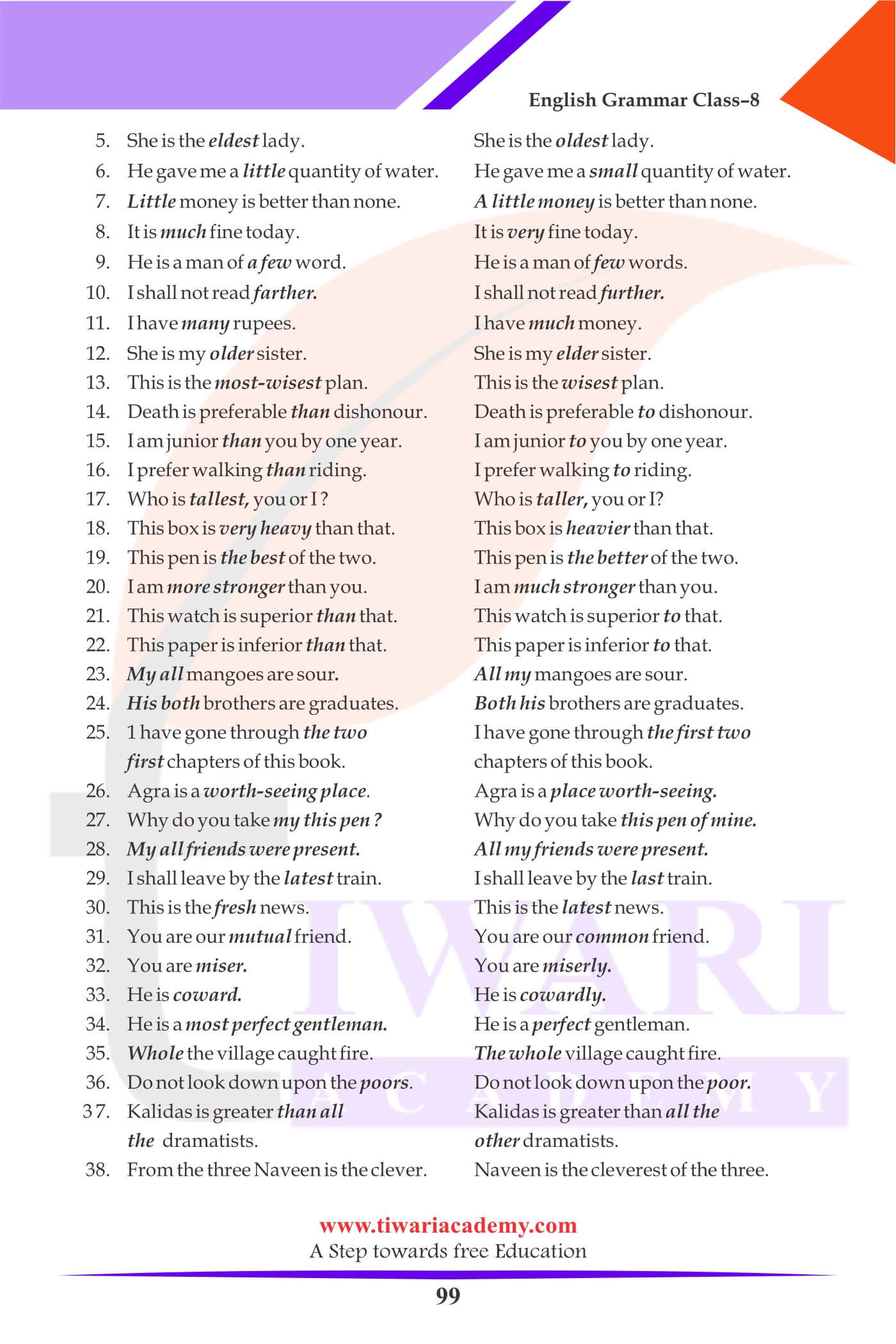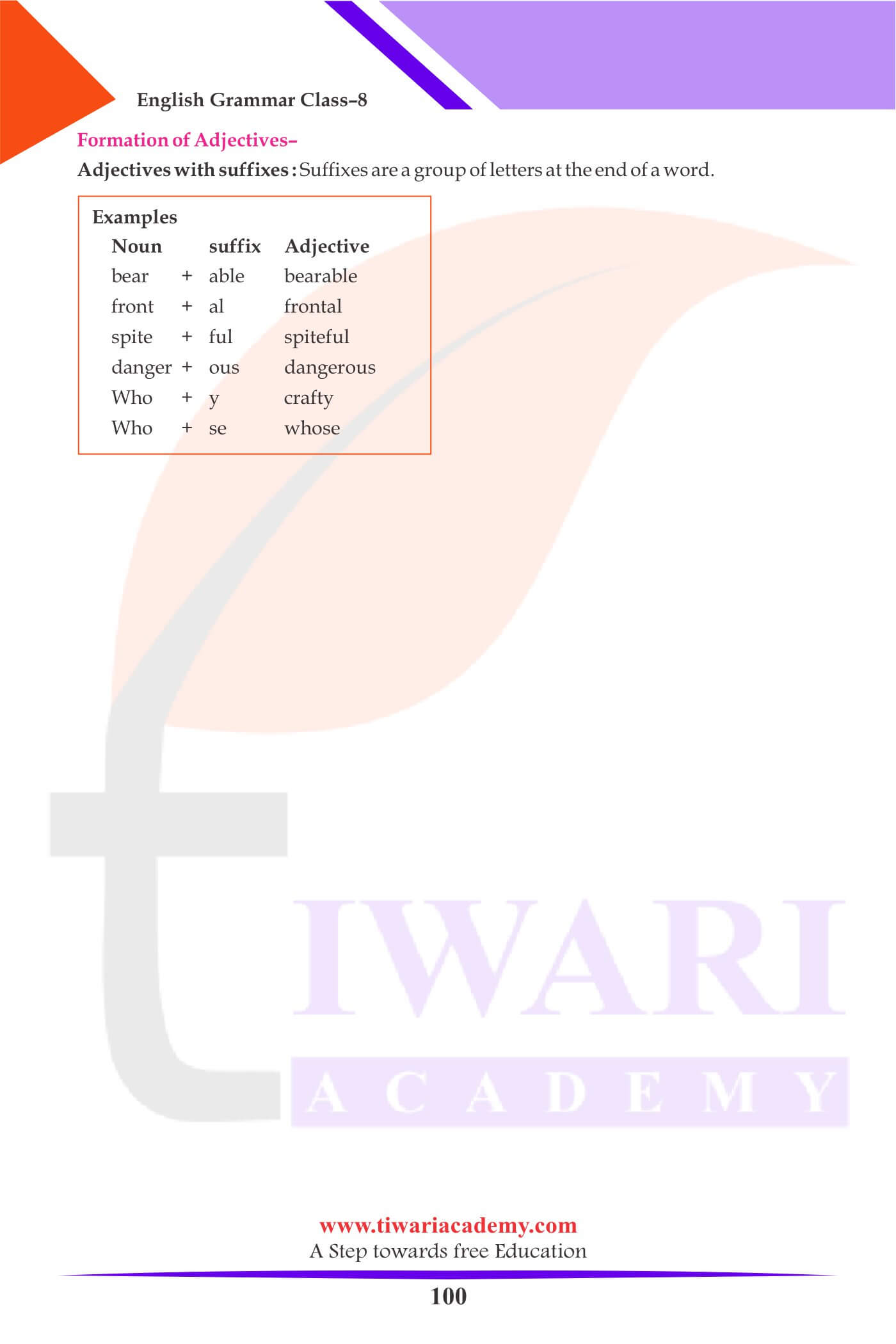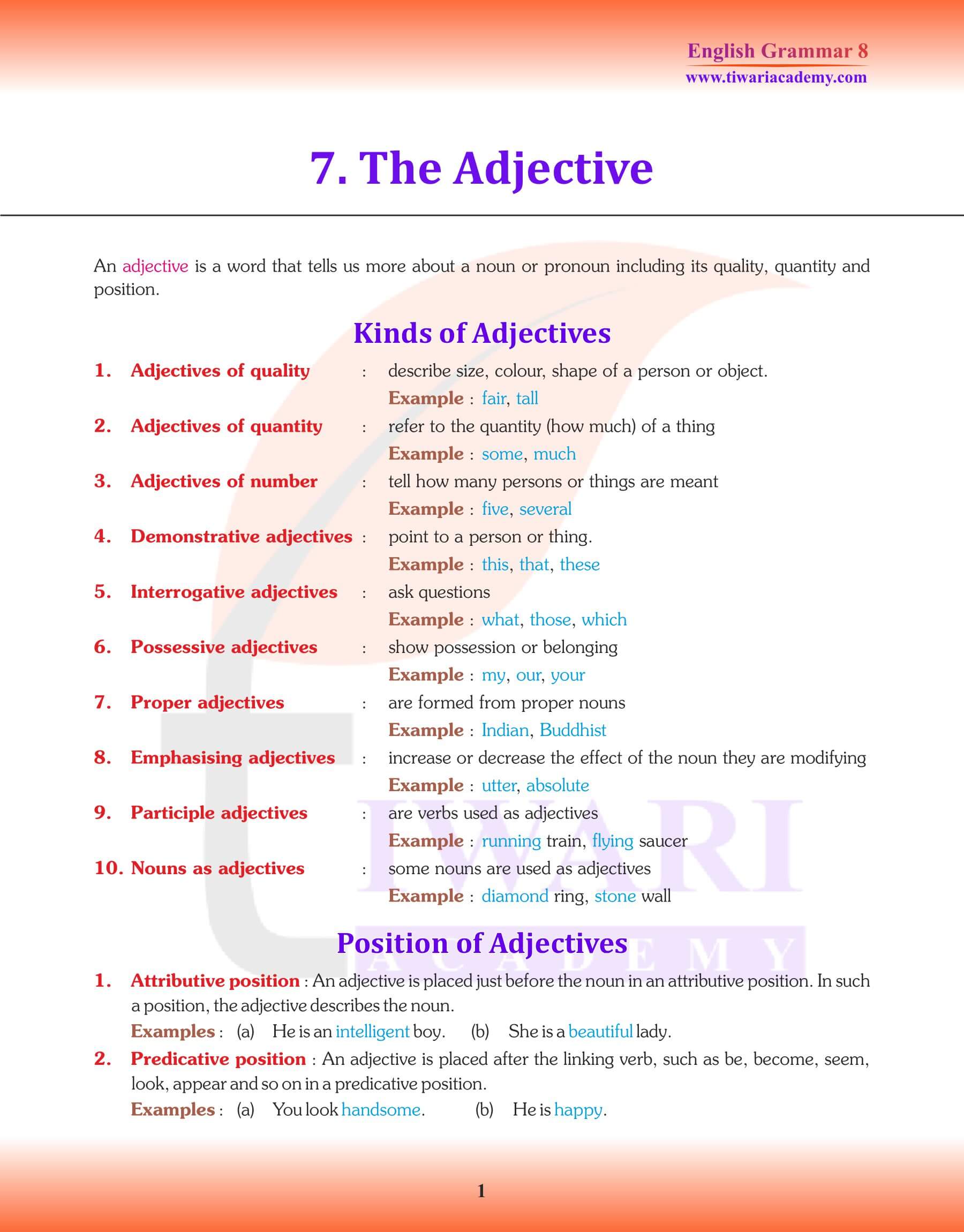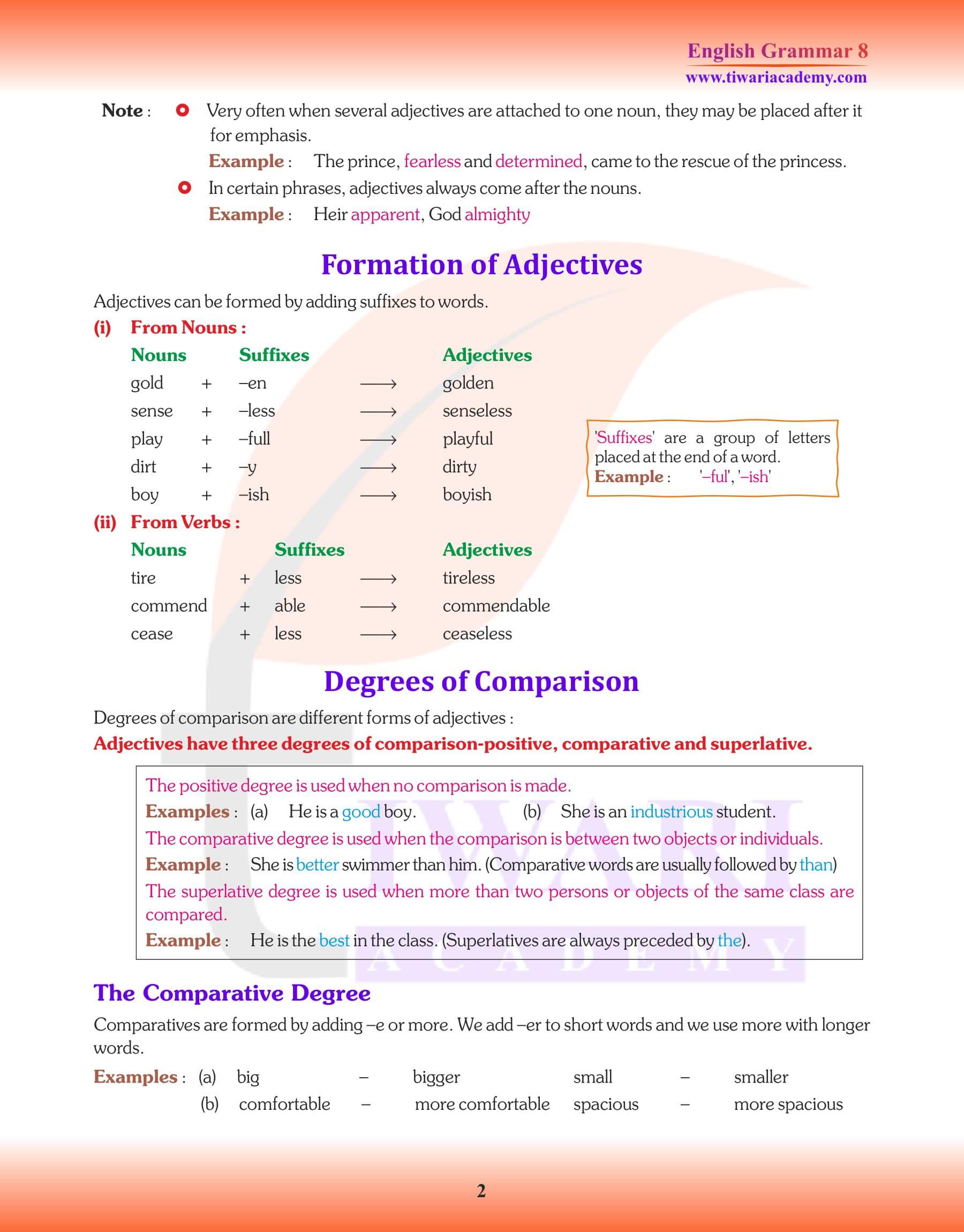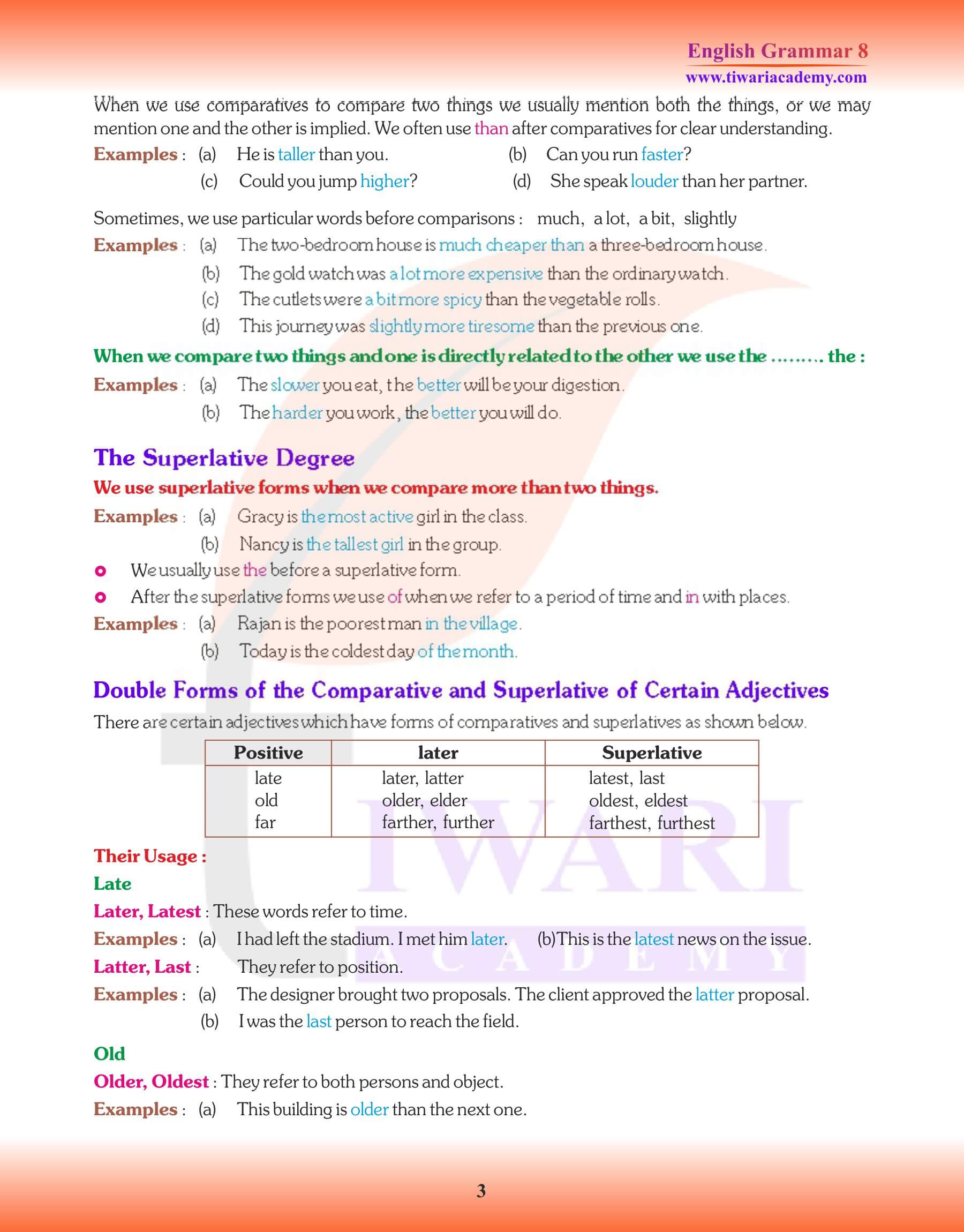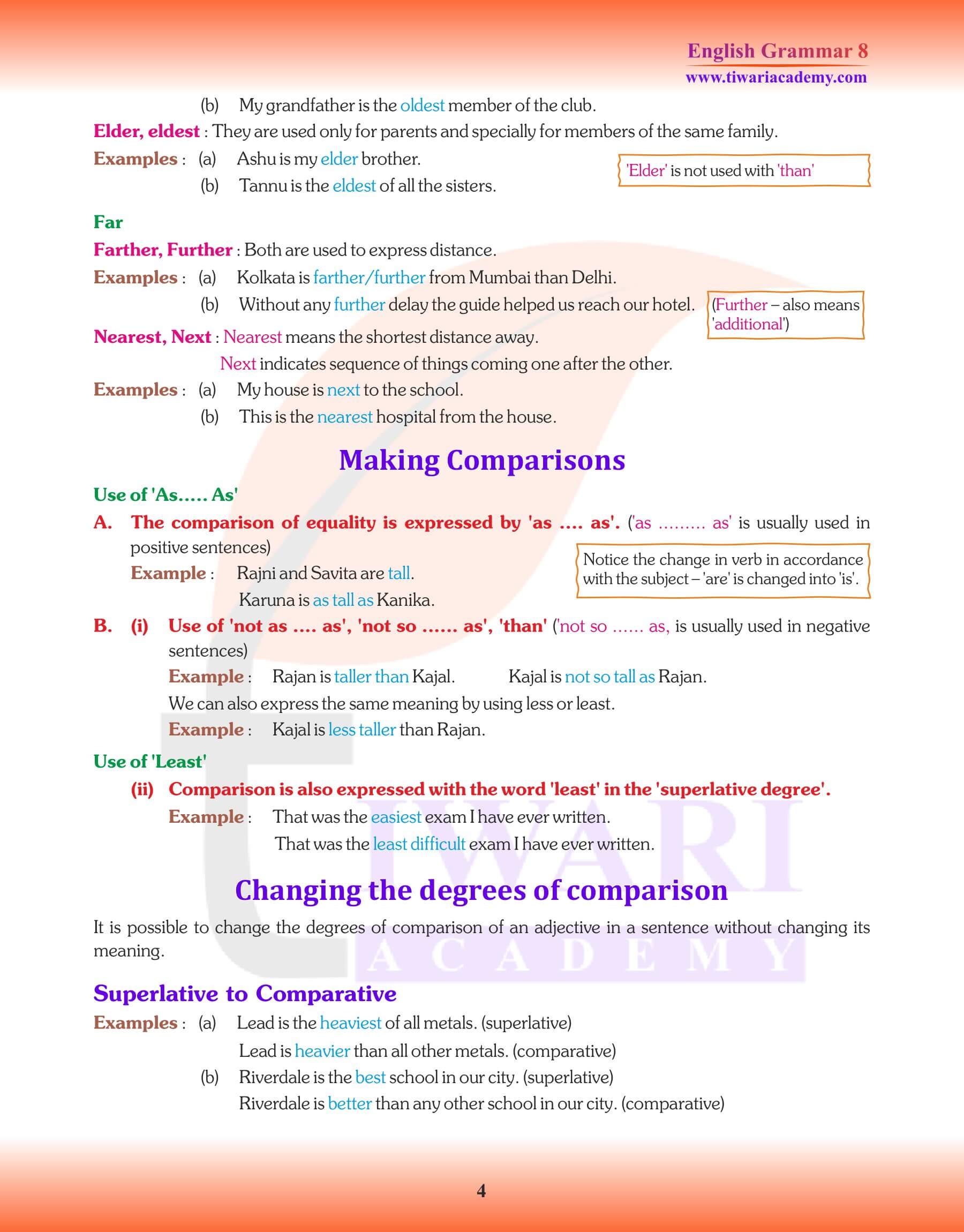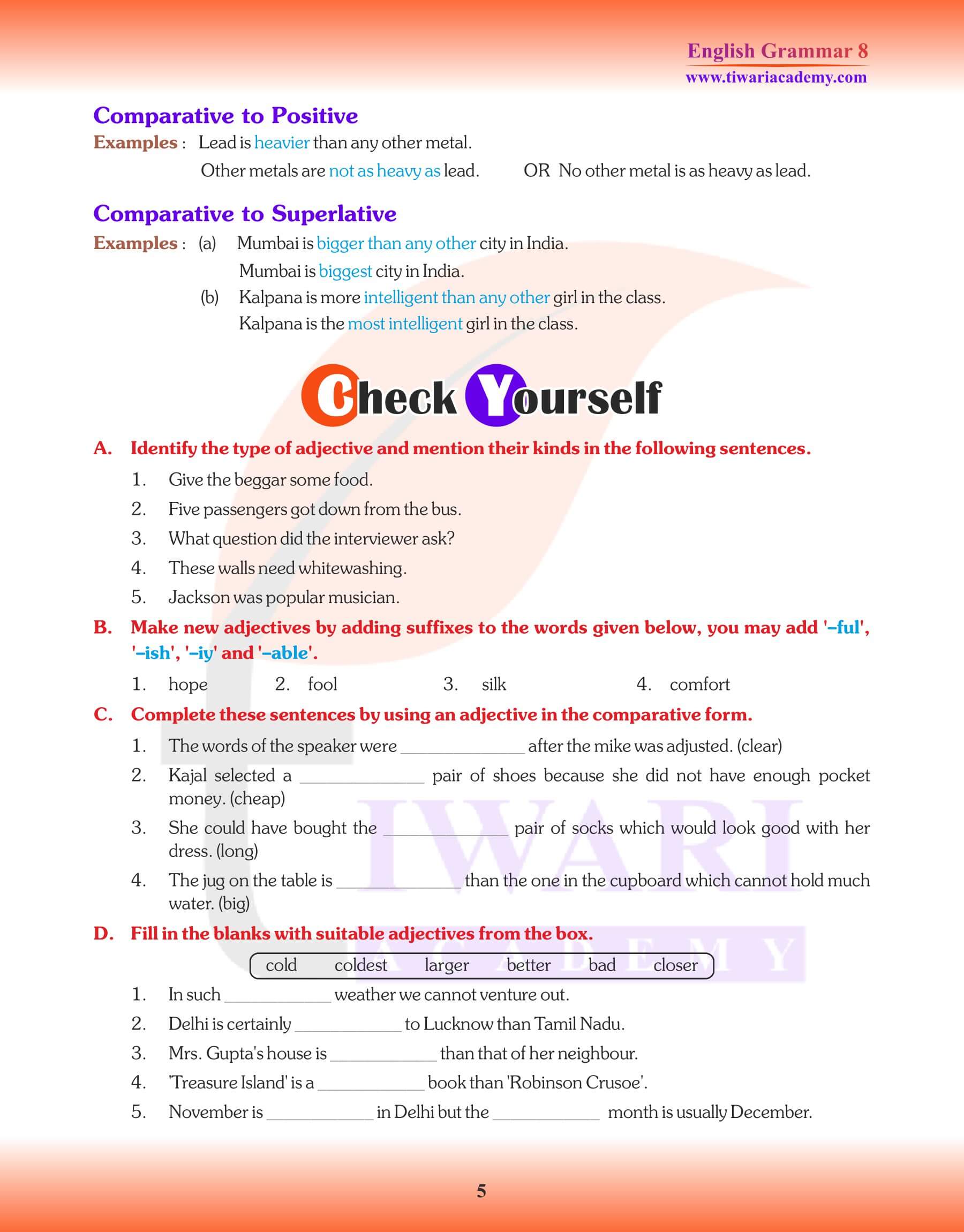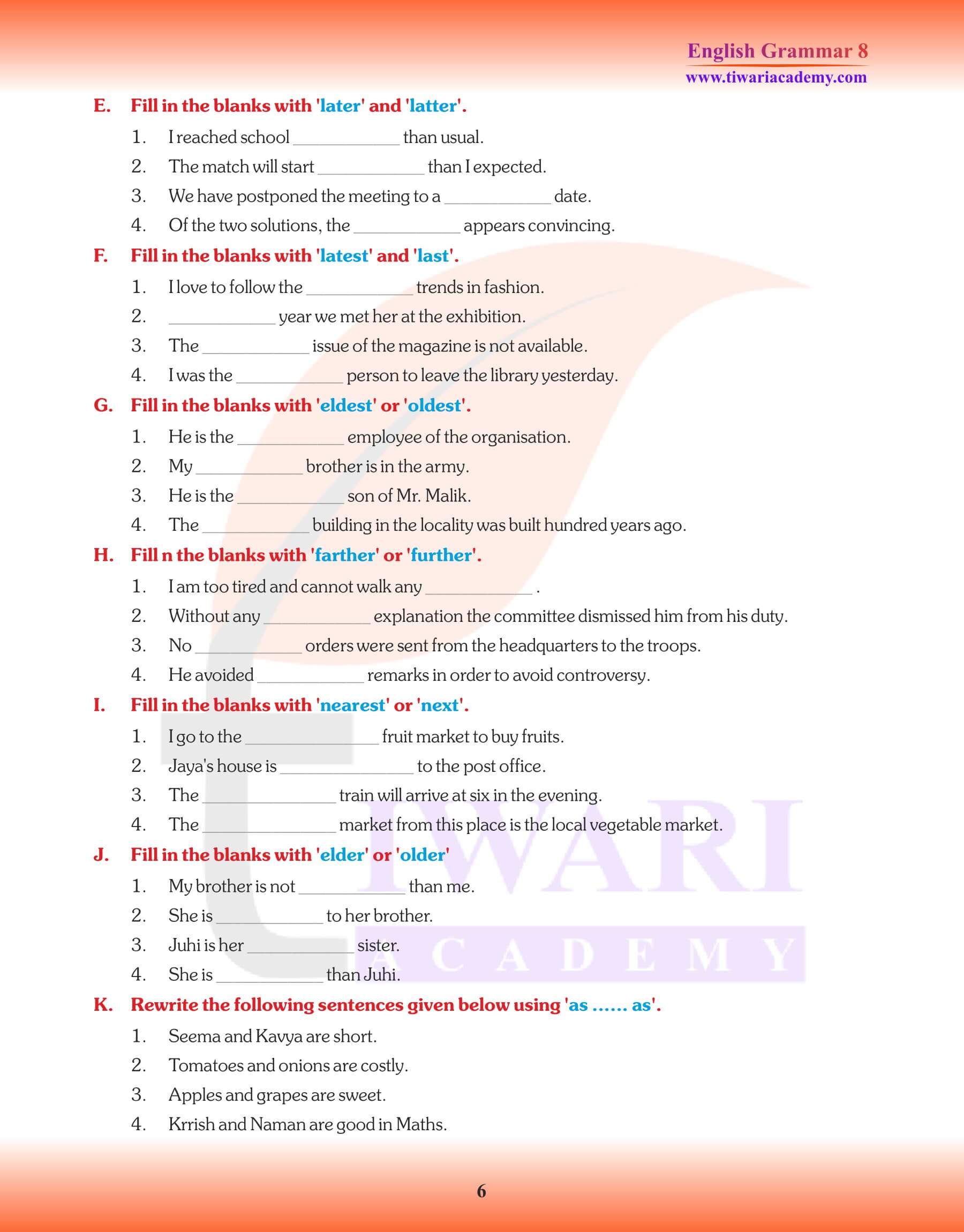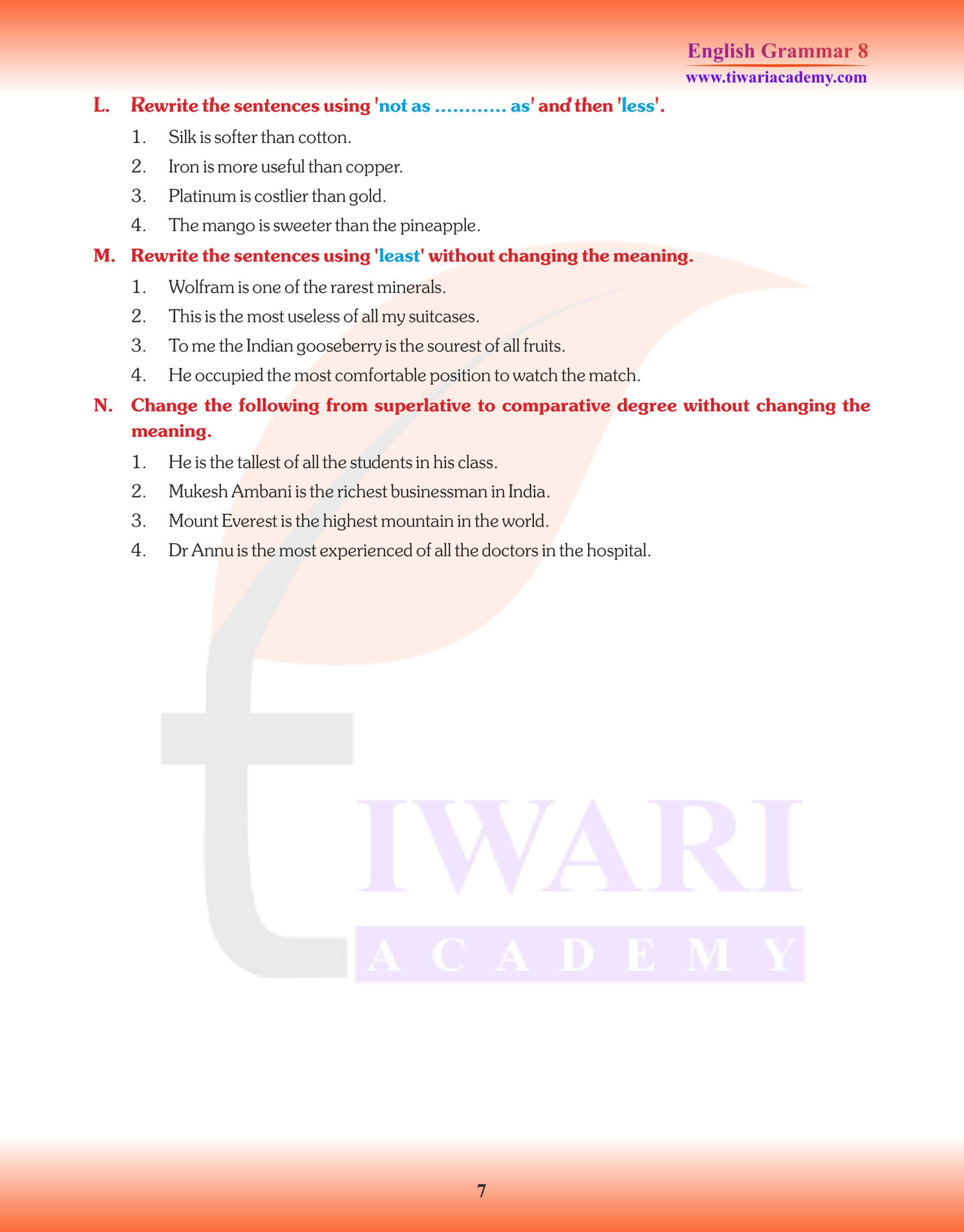Class 8 English Grammar Chapter 7 The Adjective. An Adjective is a word to qualify a Noun or a Pronoun; as. good boy, beautiful girl, ripe mango, some milk, that man etc. The words good, beautiful, ripe, some, that describing “boy” girl “mango”, “milk” and “man” are called Adjectives. An Adjective can be used in two different ways. When the Adjective is used before the noun as an epithet or an attribute, we call it Attributive Adjective. When the Adjective is used after the verb and forms part of the predicate, it is called Predicative Adjective.
In the realm of Class 8 English Grammar, Chapter 7 ushers students into the vibrant world of ‘The Adjective.’ These unique elements in language serve as the color and tone-setters, providing detail and depth to the subjects they describe. Simply put, adjectives act as the beautifying agents, making sentences more vivid and expressive. But what exactly is an adjective? This chapter delves deep, shedding light on this crucial component of grammar.
Adjectives, by definition, are words that qualify or modify nouns and pronouns. They can describe, identify, or quantify the entity they’re associated with. For instance, in the phrase ‘good boy,’ the word ‘good’ describes the quality of the ‘boy.’ Similarly, in ‘beautiful girl,’ ‘ripe mango,’ ‘some milk,’ or ‘that man,’ the words ‘beautiful,’ ‘ripe,’ ‘some,’ and ‘that’ serve as adjectives, respectively, detailing the nouns following them. By introducing such descriptors, the reader or listener gets a clearer picture of the noun or pronoun’s attributes or qualities.
| Class: 8 | English Grammar |
| Chapter: 7 | The Adjective and its Kinds |
| Books: | Main Course book and Revision Notes |
| Academic Session: | 2025-26 |
Kinds of Adjectives
- Proper Adjective
- Descriptive Adjective
- Quantitative Adjective
- Numeral Adjective
- Demonstrative Adjective
- Distributive Adjective
- Interrogative Adjective
- Exclamatory Adjective
- Possessive Adjective
- Emphasizing Adjective
Proper Adjectives
Adjectives formed from Proper Nouns are called Proper Adjectives. They are also classed as Adjectives of Quality as. The Indian batsman, the English lady, the Turkish tobacco etc.
Descriptive Adjectives or Adjectives of Quality
Adjectives of Quality describe Nouns. They show the quality, kind, State or condition of a person or a thing; as, a large city, an honest man, a noble king, a big box, an old lady. Adjectives of Quality answer the questions of what kind?
- Quantitative Adjectives or Adjectives of Quantity
They tell us about the quantity or degree of a thing. They show how much a thing is meant as, She showed much patience. - Numeral Adjectives or Adjectives of Number
They show how many persons or things are meant, or in what order a person or a thing stands as; all, some, one, two, last etc. Note: They are of four kinds as,
First, second, third, fourth etc.
Now- study the following sentences carefully.
The study of adjectives doesn’t end with mere identification. The chapter further dissects the usage of adjectives, revealing two primary ways they can be incorporated into sentences:
- Attributive Adjectives: These are adjectives that appear directly before the noun they’re describing, acting as an epithet or attribute. In sentences like ‘red apple’ or ‘happy child,’ ‘red’ and ‘happy’ serve as attributive adjectives, giving more information about the apple’s color or the child’s mood, respectively.
- Predicative Adjectives: These adjectives don’t sit beside the noun but rather appear after the linking verb, forming part of the predicate of the sentence. An example can be seen in the statement, ‘The apple is red,’ where ‘red’ is a predicative adjective describing the apple.
| Adjectives of Quantity | Adjectives of Number |
|---|---|
| He did not eat any rice. | Are there any boys in the play ground ? |
| There is some water in the jug. | Some girls did not attend the class today. |
| She has no sense. | There are no pictures in this book. |
| I spent all the money. | All men must die. |
- Demonstrative Adjectives
Demonstrative Adjectives point out persons, places, or things which they refer to (the word ‘Demonstrative’ means pointing out); as, this, that, these, those, a, an; the, such, same, some, other etc. - Distributive Adjectives
Distributive Adjectives show that the persons or things are taken separately or in separate lots as, India expects every man to do his duty. - Interrogative Adjectives
Interrogative Adjectives ask questions and thus restrict the nouns before which they are used as, What color is your shirt? - Exclamatory Adjectives
Exclamatory Adjectives are used in exclamatory sense e.g. What a piece of work the man is!
Esteemed educational platforms, like Tiwari Academy, understand the importance of comprehending the nuances of adjectives for students. Their dedicated NCERT Solutions and resources for Class 8 English Grammar are tailored to ensure students not only recognize adjectives but also employ them effectively in their writing and speech. After all, a well-placed adjective can make all the difference, adding flavor and zest to an otherwise mundane sentence.
Possessive Adjectives
Possessive Adjectives indicate possession or relationship. The words – my, our, your, his, her, its, their when used before a noun to qualify it are called Possessive Adjectives; as, My brother, our school, your father, his book, her husband, its leg, their leader etc.
Emphasizing Adjectives
The word own and very may be used to emphasis Possessive Adjectives as, I saw it with my own eyes.
Comparison of Adjectives
| Positive | Comparative | Superlative |
|---|---|---|
| Bold | Bolder | Boldest |
| Bright | Brighter | Brightest |
| Able | Abler | Ablest |
| Base | Baser | Basest |
Errors in The Use Of Adjectives
| Incorrect | Correct |
|---|---|
| I feel uneasy | I feel unwell |
| She has a strong headache. | She has a bad headache. |
| I have not some ink. | I have not any ink. |
| I have no any friend. | I have no friend. |
In conclusion, Chapter 7 is more than just a grammar lesson. It’s a gateway to richer communication, encouraging students to explore the myriad shades of description. Through a thorough grasp of adjectives, learners can elevate their language skills, painting more vivid mental pictures with their words.
Formation of Adjectives
Adjectives with suffixes: Suffixes are a group of letters at the end of a word.
| Noun | suffix | Adjective |
|---|---|---|
| bear | able | bearable |
| front | al | frontal |
| spite | ful | spiteful |
| danger | ous | dangerous |
